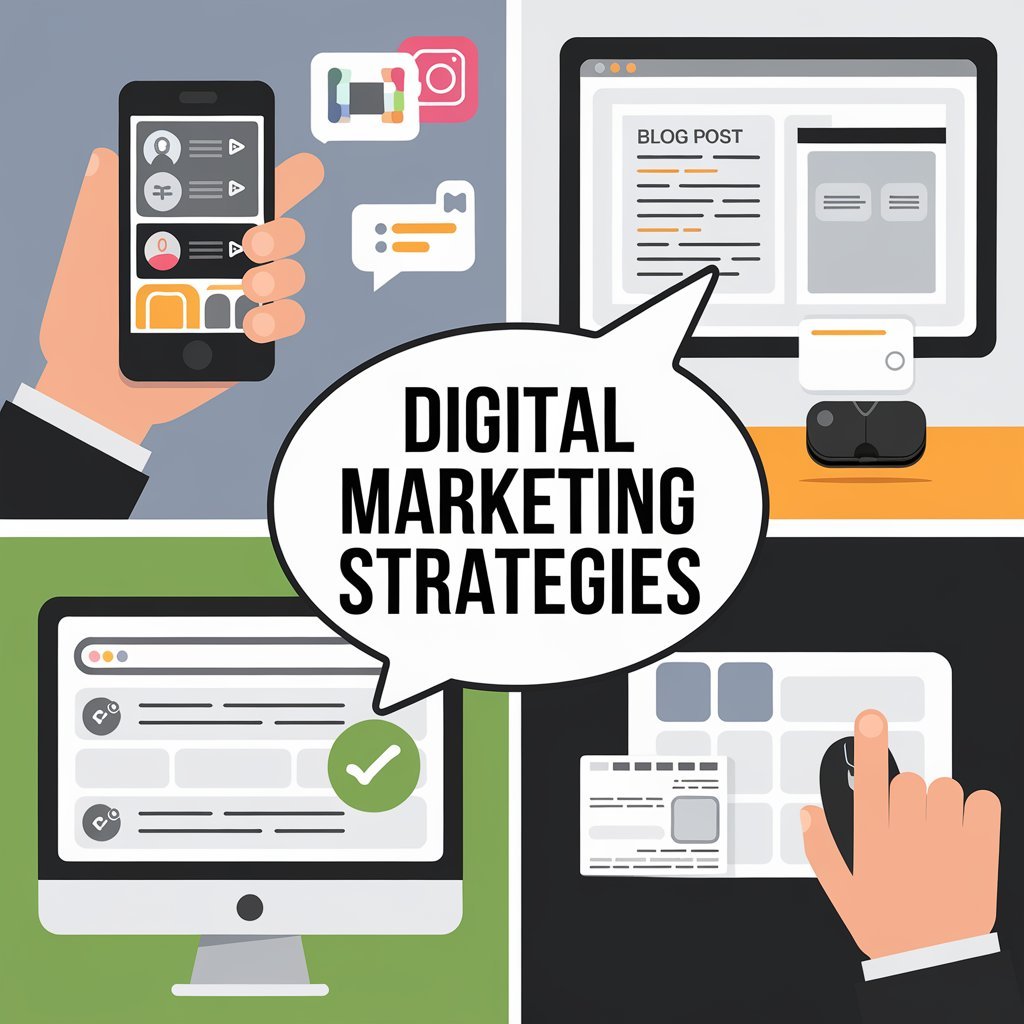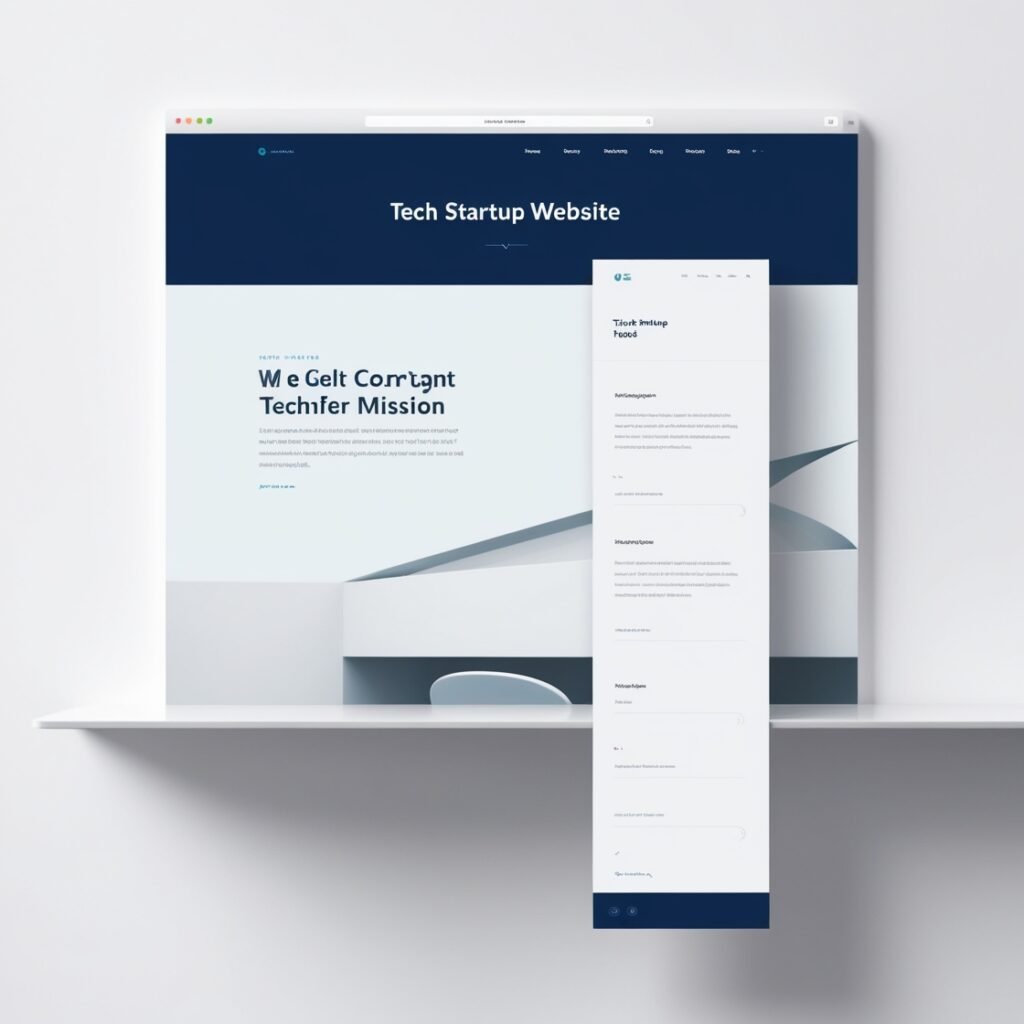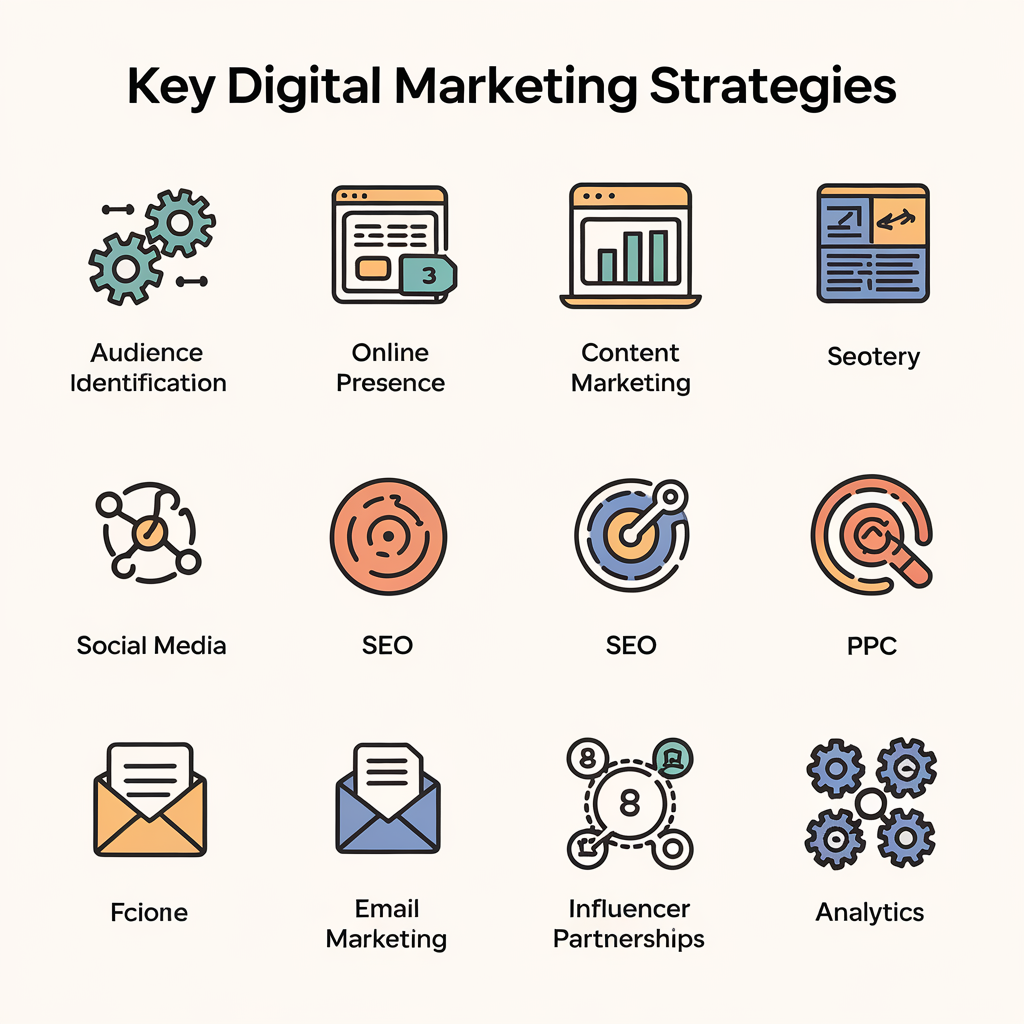Effective Digital Marketing Strategies for Tech Startups|2024|
Tech startups face a highly competitive landscape, and standing out requires more than just a groundbreaking product. To succeed, tech startups must implement effective digital marketing strategies that can attract and engage their target audience. By leveraging the right digital marketing techniques, tech startups can not only reach a broader audience but also convert leads into loyal customers. In this article, we’ll explore effective digital marketing strategies for tech startups, providing actionable insights to help your startup thrive.

1. Understanding the Importance of Digital Marketing for Tech Startups
Digital marketing is crucial for tech startups because it offers a scalable and cost-effective way to reach a global audience. Unlike traditional marketing methods, digital marketing provides the ability to measure and analyze campaign effectiveness in real time, allowing startups to adapt quickly and maximize their return on investment.

Internal Link Opportunity: Link the phrase “real-time analysis” to a page discussing the importance of real-time data in digital marketing.
2. Identifying Your Target Audience
Knowing your target audience is the first step in creating an effective digital marketing strategy. For tech startups, this means understanding who your potential customers are, what problems they face, and how your product or service can solve those problems. Creating detailed buyer personas helps you tailor your marketing efforts to meet the specific needs and preferences of your audience.
- Research: Use tools like Google Analytics and social media insights to gather data about your audience’s demographics, interests, and online behavior.
- Segment: Divide your audience into segments based on common characteristics, such as age, location, or purchase behavior.
- Create Personas: Develop detailed profiles for each segment, including information about their goals, challenges, and preferred communication.

3. Building a Strong Online Presence
A strong online presence is foundational for any tech startup. Your website serves as the digital storefront for your business, so it needs to be professional, user-friendly, and optimized for search engines.
- Responsive Design: Ensure your website is mobile-friendly and provides a seamless experience across all devices.
- SEO Optimization: Use relevant keywords throughout your website to improve your search engine rankings. Optimize your meta titles, descriptions, and headers to align with your target audience’s search queries.
- Blog Content: Regularly publish high-quality blog posts that provide value to your audience. This not only positions your startup as an industry expert but also helps with SEO.

4. Content Marketing: The Heart of Digital Strategy
Content marketing is a powerful tool that can drive traffic, generate leads, and build trust with your audience. For tech startups, content marketing can take various forms, including blog posts, e-books, whitepapers, videos, and webinars.
- Educational Content: Create content that educates your audience about the industry, emerging trends, and solutions to common problems. This helps establish your startup as a thought leader.
- Product-Focused Content: Develop case studies, product demos, and tutorials that showcase the benefits and features of your product.
- Visual Content: Use infographics, videos, and interactive content to engage your audience and make complex information easier to understand.

5. Leveraging Social Media Platforms
Social media platforms are essential for tech startups to build brand awareness and engage with their audience. Each platform offers unique opportunities:
- LinkedIn: Ideal for B2B startups to connect with industry professionals, share content, and build relationships.
- Twitter: Great for real-time engagement, sharing industry news, and joining relevant conversations.
- Instagram: Useful for B2C startups to showcase products, company culture, and engage with a younger audience through visual content.
- Facebook: Offers a broad reach, suitable for both B2B and B2C startups to share updates, host events, and run ads.

6. Search Engine Optimization (SEO) for Tech Startups
SEO is essential for driving organic traffic to your website. By optimizing your site for search engines, you can improve your visibility and attract potential customers.
- Keyword Research: Identify keywords relevant to your industry and integrate them into your website content.
- On-Page SEO: Optimize your web pages’ titles, meta descriptions, headings, and content with target keywords.
- Technical SEO: Ensure your website is fast, secure (HTTPS), and mobile-friendly. Fix any broken links and improve site structure for better crawlability.
- Link Building: Develop a strategy to acquire high-quality backlinks from reputable websites in your industry.

7. Pay-Per-Click (PPC) Advertising
PPC advertising allows tech startups to reach potential customers quickly by placing ads in search engine results or on social media platforms. This can be an effective way to drive targeted traffic and generate leads.
- Google Ads: Target specific keywords that potential customers are searching for. Create compelling ad copy and use extensions to provide additional information.
- Social Media Ads: Use platforms like LinkedIn, Facebook, and Instagram to target ads based on demographics, interests, and behaviors.
- Retargeting: Use retargeting ads to reach visitors who have interacted with your website but haven’t converted, reminding them of your product or service.

8. Email Marketing Campaigns
Email marketing is one of the most cost-effective digital marketing strategies for tech startups. By building a list of subscribers, you can nurture leads, provide value, and drive conversions.
- Build Your List: Use lead magnets, such as e-books or exclusive content, to encourage visitors to subscribe to your email list.
- Segmentation: Segment your email list based on demographics, behavior, or past interactions to send targeted and personalized messages.
- Automated Campaigns: Set up automated email sequences for onboarding new subscribers, nurturing leads, and re-engaging inactive customers.
- Personalization: Use the recipient’s name and tailor content to their interests or previous interactions with your brand.

9. Influencer Partnerships and Collaborations
Partnering with influencers can help tech startups reach a larger audience and build credibility. Influencers have established trust with their followers, making their endorsements highly effective.
- Identify Relevant Influencers: Look for influencers who align with your brand values and have a following that matches your target audience.
- Collaborations: Engage influencers through sponsored posts, product reviews, or co-hosted webinars. These collaborations can increase brand awareness and drive traffic to your website.
- Micro-Influencers: Consider working with micro-influencers who have smaller but highly engaged audiences. They can be more cost-effective and provide authentic promotion.

10. Analytics and Performance Tracking
Measuring the effectiveness of your digital marketing strategies is crucial for continuous improvement. By using analytics tools, tech startups can track key performance indicators (KPIs) and make data-driven decisions.
- Google Analytics: Use this tool to track website traffic, user behavior, and conversion rates. Set up goals and events to measure specific actions on your site.
- Social Media Analytics: Each social platform provides insights into engagement, reach, and follower growth. Use these metrics to refine your social media strategy.
- Email Marketing Metrics: Monitor open rates, click-through rates, and unsubscribe rates to gauge the effectiveness of your email campaigns.
- A/B Testing: Test different versions of your landing pages, ad copy, and email content to see what performs best. Use these insights to optimize your campaigns.
Conclusion
Implementing effective digital marketing strategies is essential for tech startups to succeed in today’s competitive environment. By understanding your target audience, building a strong online presence, and leveraging various digital channels, tech startups can drive growth, engage with customers, and build a sustainable brand. Start implementing these strategies today to take your tech startup to the next level.

